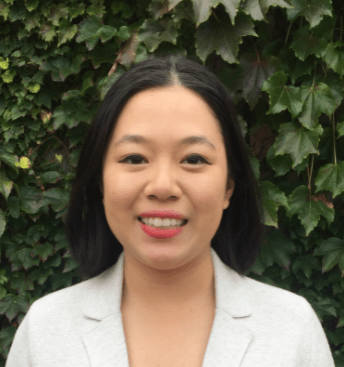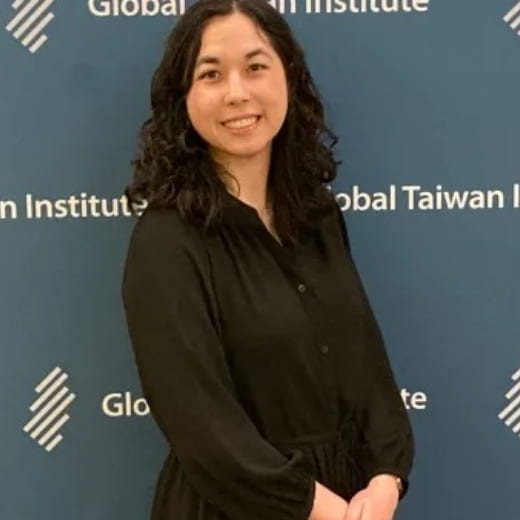
Humanizing the Conflict Across the Taiwan Strait: Lessons From the Strait Talk Dialogue Movement
Thursday, November 2, 2023
2:00 PM – 3:15 PM ET
Lindner Family Commons
Elliott School of International Affairs
1957 E Street NW Washington, D.C. 20052
Tensions across the Taiwan Strait remain high as Beijing expresses its deepening commitment to reunification, Taiwan prepares for the upcoming presidential and legislative elections, and U.S.-China competition intensifies. A non-partisan civil society initiative established in 2005, Strait Talk regularly convenes conflict resolution dialogues for young civil society delegates from both sides of the Taiwan Strait and the United States to examine the sources of these tensions. Strait Talk also enables its participants to develop action plans for resolution and build relationships. Having organized dialogues across six locations inside and outside the United States, Strait Talk has developed an alumni network of over 1,000 people working in government, business, academia, and civil society. This panel will outline the vision, history, and method of Strait Talk dialogues and highlight the experiences of Strait Talk participants from both sides of the Strait. The panel will also examine Strait Talk’s contribution to humanizing cross-Strait relations, in which high-level political discussions and security issues occupy much of the public’s attention. The panel concludes with findings from the two decades of action research on the shifting nature of the dialogue participants’ memories of cross-Strait relations.
About
Speakers

Ava Shen covers Taiwan and Chinese foreign policy and domestic politics at Eurasia Group. Previously, she interned at Rhodium Group, conducting economic research on China and Taiwan. She also worked as a research assistant at the Stimson Center, focusing on Chinese foreign policy in Asia and China-West Africa cooperation on maritime environmental issues.
Ava obtained a master’s degree from The Johns Hopkins School of Advanced International Studies with concentrations in China studies and international economics. She has a bachelor’s degree from Boston University in international relations and French studies. Born and raised in China, Ava speaks Mandarin, English, and French. In her free time, she likes reading historical fiction, going to art museums, running, and playing tennis. Ava is Strait Talk Alumna and Board Member.

Adrienne Chih-fang Wu is a research associate at the Global Taiwan Institute and the host and producer of Taiwan Salon, GTI’s cultural policy and soft power podcast. With an interest in exploring the intersection of culture and policy, her research focuses on how Taiwan can strengthen international connections through nation branding, cultural diplomacy and a strong civil society. She is also a member of the UC Berkeley U.S.-Taiwan Next Generation Working Group, where she is conducting a research project on the barriers to importing Taiwanese cultural products. Before joining GTI, she graduated from Ritsumeikan University and Kyunghee University with a Dual Master’s Degree in International Relations. She spent seven years living in Taiwan, South Korea, and Japan—including three years of teaching English in Japan and Taiwan and a year of study at Waseda University while pursuing her B.A. in Honors East Asian Studies from McGill University. She also worked at the Presidential Precinct to help facilitate the Mandela Washington Fellowship Program for young African leaders. As a Taiwanese-American, the mission of GTI is close to her heart, and she is excited to be part of an organization committed to better public understanding of Taiwan worldwide. She is a Strait Talk GW ’23 Alumna.

Dr. Tatsushi (Tats) Arai (新井立志) is an Associate Professor at Kent State University’s School of Peace and Conflict Studies. He is a peace researcher and conflict resolution practitioner with twenty-five years of international experience. Dr. Arai has led or co-led conflict resolution initiatives in over twenty countries across Asia, Africa, and the Middle East as well as in the United States. Prior to joining Kent State in 2019, Dr. Arai had served as a United Nations Senior Mediation Advisor on a when-actually-employed basis and as the Sergio de Mello Endowed Visiting Chair in the Practice of Post-Conflict Diplomacy at Seton Hall University in New Jersey. He was also a Professor of Peacebuilding and Conflict Transformation at the School for International Training (SIT) Graduate Institute in Vermont and previously taught international relations at the National University of Rwanda in the aftermath of the 1994 genocide. He received a PhD from George Mason University’s Jimmy and Rosalynn Carter School for Peace and Conflict Resolution (formerly S-CAR/ICAR) in 2005 and its Distinguish Alumnus Award in 2015.
Dr. Arai’s recent peacebuilding practice as a mediator, dialogue facilitator, trainer, mentor, and designer of systemic social change includes supporting a Nigerian-led initiative in building a sustainable reconciliation platform for the community reintegration of rehabilitated former Boko Haram members; building the West African Initiative for Peace (WAIP), a Burkinabe-led peacebuilding effort; training Syrian and Lebanese humanitarian professionals in mediation skills; facilitating capacity-building workshops for diplomats from Muslim-majority countries; promoting interfaith and inter-communal coexistence in Singapore and Myanmar (including in Rakhine State), and conducting Interactive Conflict Resolution workshops on the Taiwan Strait as well as on China-Japan relations. (Dr Arai’s TED Talk on his peacebuilding practice is available here.) Dr. Arai is the Founding Interactive Conflict Resolution (ICR) Facilitator of Strait Talk
Moderator

A native of China, Professor Daqing Yang graduated from Nanjing University and received his Ph.D. from Harvard University. He specialized in the history of modern Japan. His research interests include the Japanese empire, technological developments in modern Japan, and the legacies of World War II in East Asia.
In 2004, Dr. Yang was appointed a Historical Consultant to The Nazi War Crimes and Japanese Imperial Government Records Interagency Working Group at the U.S. National Archives. In fall 2006, Dr. Yang served as the Edwin O. Reischauer Visiting Professor of Japanese Studies at Harvard University.
Professor Yang is a founding co-director of the Memory and Reconciliation in the Asia Pacific program based in the Sigur Center for Asian Studies, and is currently working on a new project on postwar China-Japan reconciliation. He is the author of Technology of Empire: Telecommunications and Japanese Expansion in Asia, 1883-1945. He co-edited the following books: Memory, Identity, and Commemorations of World War II: Anniversary Politics in Asia Pacific; Toward a History Beyond Borders: Contentious Issues in Sino-Japanese Relations, which was also published simultaneously in China and Japan; Rethinking Historical Injustice and Reconciliation in Northeast Asia; and Communications Under the Seas: The Evolving Cable Network and Its Implications.

